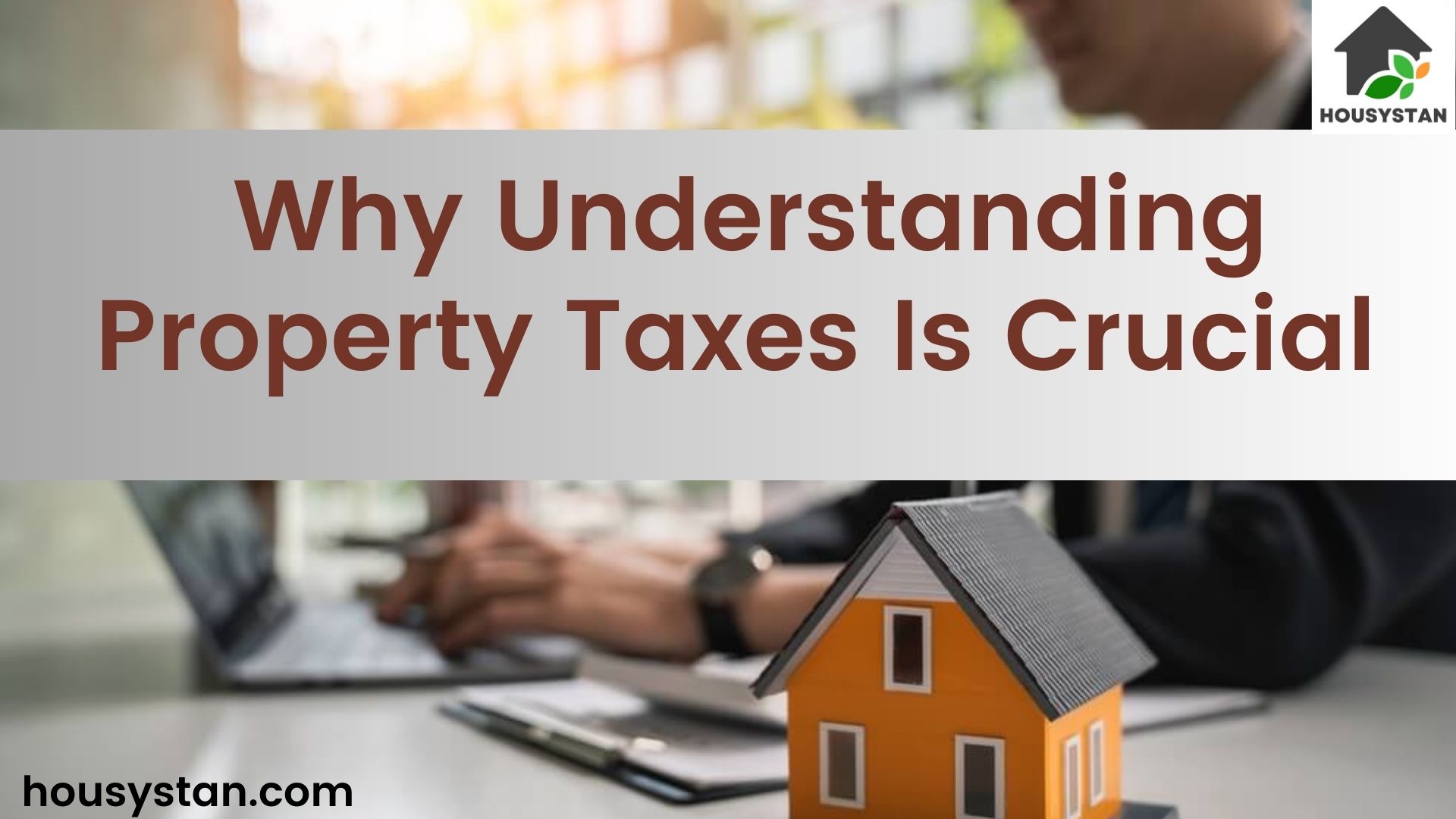Why Understanding Property Taxes Is Crucial
Read latest blogs and articles from Housystan

The Information mentioned here was last updated on:
29/1/2026Understanding Property Taxes: Why It Matters
Owning a property comes with its own set of responsibilities, and one of the most significant is understanding property taxes. These taxes can impact your financial planning, home ownership, and even the community you live in. Let's delve into why being informed about property taxes is crucial for anyone who owns or plans to own property.
What Are Property Taxes?
- Verified Tenants/Buyers
- Unlimited Property Listing
- Zero subscription/charges fee
Property taxes are levies imposed by local governments on real estate owners. These taxes are based on the value of the property, which includes both the land and any structures standing on it. Property taxes are a primary source of revenue for local governments, helping finance vital public services such as schools, roads, emergency services, and parks.
How Property Taxes Are Calculated
At the heart of understanding property taxes is knowing how they are calculated. The amount you owe is typically determined by multiplying the assessed value of your property by the local tax rate, often expressed in mills. One mill represents one-tenth of a cent, meaning one dollar of tax per $1,000 of assessed value. While this might sound complex, most property owners receive a tax bill that clearly outlines the valuation and the applicable rate.
Factors Affecting Property Taxes
Several factors can influence the amount of property taxes you are required to pay. Here are some key elements:
Property Assessment
A property assessment is an evaluation done by the local government to estimate the property's market value. Assessors consider factors such as the size of the property, the number of rooms, any improvements made, and the property's location. Regular assessments ensure that taxes reflect current market conditions.
Local Tax Rates
The local tax rate is set by the tax authorities based on budgetary needs for public services. These rates can vary significantly from one area to another. High-demand urban areas might have higher tax rates compared to rural regions, reflecting the cost of maintaining infrastructure and services.
Exemptions and Deductions
Certain exemptions and deductions can lower your property tax bill. For instance, seniors, veterans, or people with disabilities may qualify for reduced rates. In addition, some locations offer homestead exemptions, which decrease the taxable value for primary residences. It’s important to check eligibility and apply for these benefits if they are available.
Why Understanding Property Taxes Is Important
Having a clear understanding of property taxes is beneficial for a variety of reasons:
Budgeting and Financial Planning
Knowing your property tax obligations helps in creating a realistic budget and financial plan. Unexpected increases in property taxes can strain finances, making it crucial to stay informed about possible changes in local tax rates or assessments.
Influence on Property Values
Property taxes can have a direct impact on property values. High taxes might deter potential buyers, affecting market demand and, ultimately, your property's resale value. Conversely, a well-funded community with reasonable taxes can improve local amenities, enhancing property value.
Informed Purchasing Decisions
For prospective buyers, understanding property taxes is a critical part of the purchasing process. Assessing the tax situation of a potential new home helps avoid surprises and ensures the purchase aligns with one's financial capabilities.
Impact on Rental Properties
For landlords, property taxes are an important factor in calculating operating costs. Understanding these costs is essential for setting competitive rental prices while maintaining profitability. Significant tax hikes might require adjusting rent levels, which can affect tenant retention.
Navigating Property Tax Challenges
Staying informed and proactive can help navigate the challenges associated with property taxes:
Appealing Property Assessments
If you believe your property's assessed value does not reflect its market value, you have the right to appeal. Many jurisdictions have an appeal process where you can present evidence, such as comparable property sales, to contest the assessment.
Keeping Track of Tax Law Changes
Tax laws can change, sometimes resulting in significant shifts in tax obligations. Staying updated on local legislation helps anticipate and adjust to these changes, ensuring compliance and avoiding penalties.
Utilizing Available Resources
Many local governments offer resources to help property owners understand their taxes better. Online tax calculators, public workshops, and direct consultation services can provide valuable insights into your property tax responsibilities.
Consulting with Professionals
In instances where property tax matters become complex, consulting a property tax professional or a financial advisor can be prudent. These experts can provide guidance tailored to your situation, helping you navigate assessments, appeals, and ensure you are leveraging available exemptions.
The Role of Property Taxes in Community Development
Property taxes do more than just fund individual property services—they play a vital role in shaping the community. Here's how:
Funding Public Education
A significant portion of property taxes is allocated to public schools. This funding is essential for maintaining quality education, supporting teachers, facilities, and educational programs. Therefore, understanding property taxes can offer insights into the quality of education in a given area.
Maintaining Infrastructure
Property taxes also finance the maintenance and development of public infrastructure, including roads, bridges, and public transportation. These contributions are crucial for safety and convenience, impacting day-to-day life and overall property desirability.
Supporting Emergency Services
Police, fire departments, and emergency medical services rely heavily on property tax revenues. Ensuring these services are well-funded is crucial for community safety and well-being.
Enhancing Property Values
Well-maintained public services and amenities contribute to a community's appeal, positively influencing property values. By paying property taxes, homeowners directly invest in the quality and infrastructure of their area.
Understanding property taxes equips property owners with the knowledge to make informed financial decisions and appreciate the role their contributions play in sustaining and advancing their community. The complexities of property taxes may seem daunting, but with the right information, they become manageable and even beneficial, ensuring a stable and thriving environment for all residents.